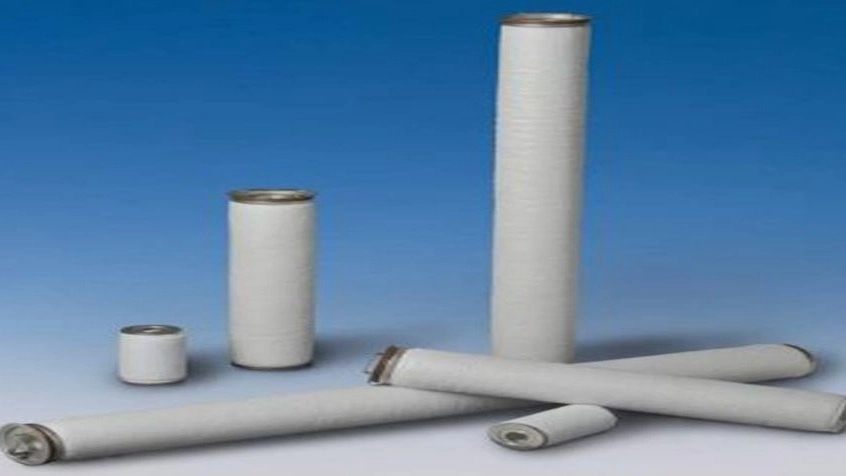Filters are used in many equipment and parts of oil and gas industries. Filters are used to remove impurities and polluting particles in various processes such as fuel injection, glycol dehydration units, lubricants, and oil and gas inputs to refinery units. Using suitable filters and maintaining their functional conditions improves the efficiency of the units and also increases the useful life of capital and expensive equipment.
Filters are used in various stages of the oil and gas industry, which include:
Upstream processes: In this section, equipment and systems are used for extracting hydrocarbon materials, usually from the depths of the earth. The use of separating solvents leads to increased outputs, increased oil recovery rates and water disposal. It is necessary for the water separated from hydrocarbon fluids to have the desired cleanliness standards before disposal. The removal of polluting and harmful particles is also done using filters, which leads to a reduction in the wear and tear of expensive equipment in water separation units. The noteworthy point is the increase in environmental strictures for the amount of purification of separated water, which makes the cost of using suitable filters fully justified.
Intermediate processes: In this section, transportation of related fluids, LNG and gas materials from upstream to refinery and downstream industries is considered. If the various materials are not properly separated and filtered, a lot of costs are imposed on the finishing processes. Filters are used to separate polluting solid particles from oil, gas and water.
Downstream processes: The purity of the oil and gas input stream to the downstream equipment plays an important role on the process conditions and the quality of the final product. Therefore, the filtration process plays an important role in the performance of all downstream processes. In this section, several processes such as alkylation, caustic purification, HF, amine and catalyst circulation flow systems, and fluid flow separation require filtration.
Although the filtration process is very important in all the above steps, the upstream processes play an essential role in determining the quality of the final product, because the quality of the hydrocarbon materials used in the next steps is determined in the initial phases. Therefore, mistakes or deficiencies in upstream processes cascade to the next stages, which can cause unplanned stops in equipment and pipelines.
Advantages of using filtration
Using filtration systems in total reduces operating costs, reduces unplanned downtime and improves overall business performance. Operational benefits include:
Preventing dust and sand from entering the equipment;
Fuel cleaning before entering engines and heaters;
Reduction of foaming in amine and glycol binders;
preventing clogging of storage tanks in water disposal equipment;
Increasing the life of pump vanes in high temperature systems;
Reducing clogging in control equipment nozzles.

The remarkable point is the high diversity and different requirements of the filters used in the oil and gas industries. For example, coalescer filters are used in upstream processes to remove solid particles and separate liquids so that contaminants do not enter equipment and pipelines. In downstream processes, filters are used to trap very small particles and phase separation. Filtration of lubricating oils guarantees quality and maintains reliability and increases the useful life of compressors and equipment used in intermediate processes. This variety can be found in the materials used, the type of filters, the size, type and material of washers and sealants. For example, the materials used in filter media include polypropylene, polysulfone and polypropylene. Various types of cartridge filters, metal and ceramic fillers, water absorbent filters are available and the length of the filters is usually between 4 and 10 inches. Therefore, choosing the right fitter according to the characteristics of the process requires relevant experience and knowledge. Also, providing quality filtration from well-established companies increases the assurance of the health and quality of the processes.

